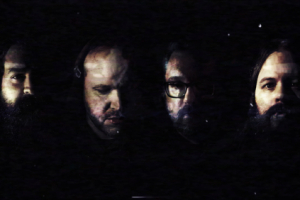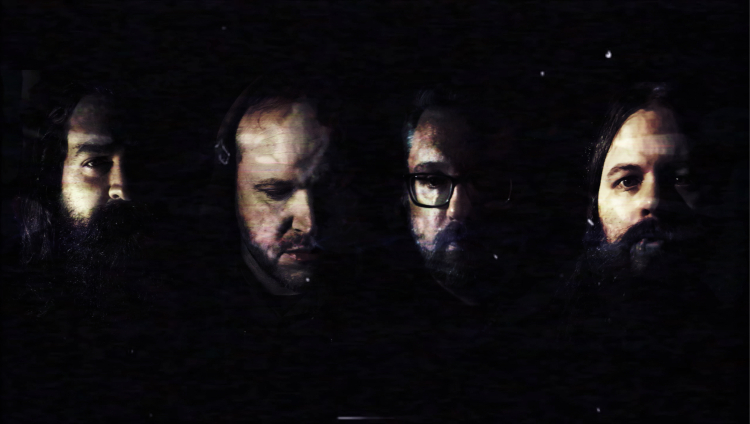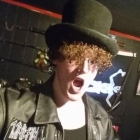
Hello Mike and welcome to Brutal Resonance! I always like to start off with this question for newcomers. What are three of your favorite albums of all time and why?
Mike McClatchey: Totally depends on what day you ask, and today I'll avoid the super obvious ones so I'll dig into the vault.
Bleak - "Vane": I got this CD my first year of high school and it connected with me instantly. The drums are very big and heavy and distant and it painted a very clear picture of the rotting industrial warehouse that I wanted all music to be in my youth. I couldn't find any information on the artist at the time, so it continued to be this very mysterious album until a couple years ago. It ended up being a side project of Lycia (who later remastered it and released it as a Lycia bandcamp album). It made sense, but it was something I hadn't known. The album didn't get the attention it deserved but it really made a large dent in my brain. I revisit it a couple times a year.
Billy Idol - "Cyberpunk": I found this album several years after it came out. It was already dated and everything about the point of the album was lost and silly. But goddamn these songs are fun as hell.
Zola Jesus - "Stridulum": It was perfect 12 years ago. It's perfect now. I feel that it will always be perfect.
You’ve been active for the past decade or so. As of right now, you’re described as a combination of industrial metal, doom, and sludge. How has the project evolved over time to fit this sound?
Your most recent album “A Darker Discharge” has recently been released. I read that your move to Wyoming inspired the confrontational and aggressive tone the album takes. How so?
Throughout “A Darker Discharge”, there are many moments where the aggressive nature of the album takes a break. Instead, we are met with melancholic but dark beauty. What are these moments meant to represent?
Now I also read that you recorded everything on a laptop as the rest of your instruments were in storage. I heard the argument from others that synthesized music can never be as raw or hard as live music. What is your opinion on the matter?
What I find interesting about your approach to writing is that you go through a weird, and I quote, “transformative body horror” lens. Explain to me what exactly that means.

“A Darker Discharge” also marks your debut release on German label Lifeforce records. Now you’ve been on a ton of fantastic labels in the past, including Annihilvs Power Electronix. What drew you to Lifeforce?
And what, if any, single song on “A Darker Discharge” is your favorite and why?
What else do you have planned for the future? Do you have any live shows, gigs, singles, or other albums in the works? If so, do you have any details about them?
Lastly, I’d like to wish you the best of luck. I leave the space below open for you to mention anything I may have missed. Cheers!
Jun 13 2022

Steven Gullotta
info@brutalresonance.comI've been writing for Brutal Resonance since November of 2012 and now serve as the editor-in-chief. I love the dark electronic underground and usually have too much to listen to at once but I love it. I am also an editor at Aggressive Deprivation, a digital/physical magazine since March of 2016. I support the scene as much as I can from my humble laptop.
Share this interview
Facebook
Twitter
Google+
Shares
Popular interviews
Psyclon Nine
Interview, Mar 24 2017
Night Runner
Interview, Oct 13 2016
Testube
Interview, Apr 02 2022
Kite
Interview, Feb 10 2017
God Destruction
Interview, May 17 2016
Related articles
Aderlating - 'Gospel of the Burning Idols'
Review, Aug 21 2013
Ironhand - 'Suffering, and the Storm of Obsidian Alloy'
Review, Sep 24 2017
Simon Carter - 'Simon'
Review, Nov 02 2021
The Silicon Scientist - 'Windows On The World'
Review, Aug 09 2013
Null Cell - 'NEMESIS'
Review, Dec 20 2021



